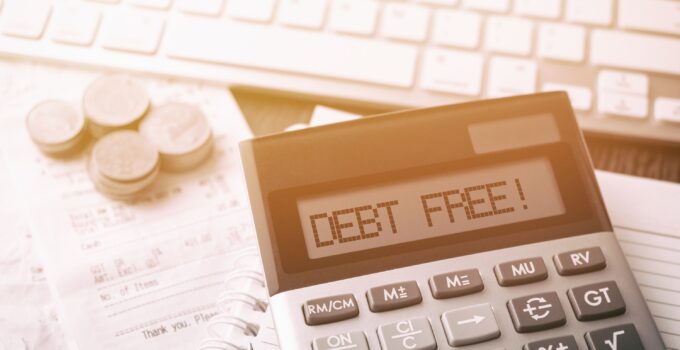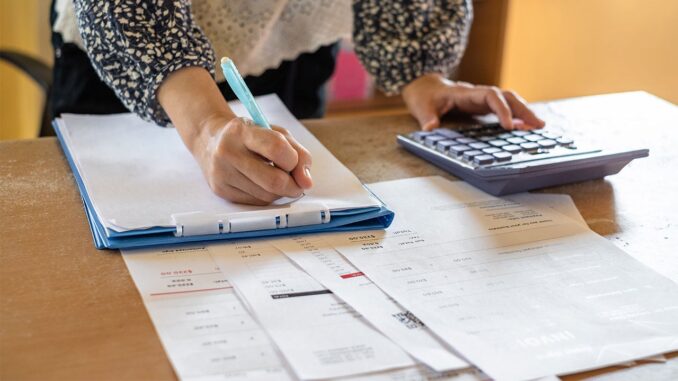Debt can come as a blessing and a curse. Loans allow us to make big purchases like a home or a car, but it can also cause anxiety and stress when we struggle to try to repay the debt. Debt-free living is a lifestyle where individuals aim to pay off all their debts and avoid borrowing money in the future. However, there are several debt relief programs that you can consider to become debt-free. In this article, we will explore the pros and cons of debt-free living to help you decide if it’s the right path for you.

Source: cnbc.com
What Is Debt-Free Living?
Debt-free living means living within your means and avoiding debt as much as possible. It involves paying off all outstanding debts and avoiding new debts, except for essential purchases like a home or a car. Debt-free living requires budgeting and saving money regularly to ensure that you have enough funds to cover unexpected expenses.
What Is Good Debt vs Bad Debt?
Debt can be categorized as either good or bad. Good debt is borrowing money to purchase assets that increase in value or generate income over time, such as a home or an investment property. Bad debt, on the other hand, is borrowing money for non-essential purchases that depreciate in value, such as a vacation or a new phone. Good debt can be beneficial in the long run, while bad debt can be harmful to your financial well-being.
Does Debt-Free Living Lead to Happiness?
While debt-free living may not guarantee happiness, it can certainly reduce financial stress and anxiety. Being debt-free allows you to focus on other aspects of life, such as building a savings account or pursuing a passion project. Debt-free living also provides a sense of financial freedom since you’re not beholden to lenders or creditors. However, some people may find it challenging to adjust to a debt-free lifestyle, especially if they’re used to relying on credit to make purchases.
Principles of Debt-Free Living:
To achieve debt-free living, you must follow a few principles. Firstly, you need to create a budget and stick to it. This means tracking your income and expenses and avoiding unnecessary purchases. Secondly, you must focus on paying off all outstanding debts, starting with high-interest debts first. Thirdly, you need to build an emergency fund to cover unexpected expenses, such as car repairs or medical bills. Finally, you must avoid new debts as much as possible, except for essential purchases.
Pros and Cons of Debt-Free Living:
Pros:
- Reduced financial stress and anxiety
- Increased sense of freedom and independence
- Ability to focus on other aspects of life, such as saving or pursuing a passion project
- Avoidance of high-interest debt and harmful financial practices
- Potential to increase credit score over time
Cons:
- Adjusting to a new lifestyle and mindset may be challenging
- Inability to take advantage of certain opportunities, such as investment opportunities or credit card rewards.
- Difficulty obtaining large purchases like a home or a car without borrowing money
- Potential to miss out on life experiences due to strict budgeting

Source: experian.com
How to Become Debt-Free Faster:
Debt-free living is a personal choice that requires commitment and discipline. It can be overwhelming to face mounting debts and high-interest rates, and it can feel like there is no way out. We are exploring two popular methods for paying off debt: the snowball method and the debt settlement method.
Snowball Method:
The snowball method is a debt reduction strategy that involves paying off your smallest debts first while making minimum payments on your larger debts. Once the smallest debt is paid off, you can use the money that was previously allocated to that debt to pay off the next smallest debt. This creates a “snowball” effect, where your debt repayment gains momentum as you pay off each debt. One advantage of the snowball method is that it provides a psychological boost by giving you quick wins. Paying off smaller debts first can provide a sense of accomplishment, which can motivate you to continue paying off your debts.
Debt Settlement:
Debt settlement is another option to consider when striving for debt-free living. Debt settlement is typically used to negotiate and settle unsecured debts, such as credit card debt, personal loans, medical bills, and some types of student loans. Debt settlement involves negotiating with your creditors to settle your debts for less than what you owe. This can be a viable option if you’re struggling to make your monthly payments and are facing the possibility of default or bankruptcy. If you choose to pursue a debt settlement program, it’s important to work with the best debt settlement company and understand the whole process. Becoming debt-free requires commitment and discipline. The snowball and debt settlement methods are popular strategies for paying off debt faster.

Source: centsai.com
Avoid Financial Problems and Find Happiness With Debt-Free Living:
Debt is a major source of financial stress for many people, and it can be challenging to break free from the cycle of debt. However, debt-free living is possible, and it can provide a path to financial freedom, stability, and even happiness. When you’re debt-free, you have more control over your finances and can avoid the stress of living paycheck to paycheck. Finding happiness living debt-free can also provide a path to happiness. When you’re not bogged down by debt payments, you can focus on the things that really matter to you, such as spending time with family and friends, pursuing hobbies, or traveling.
Why You Should Choose CuraDebt For Debt Settlement:
CuraDebt has a good reputation in the debt settlement industry, and the company is accredited by the American Fair Credit Council (AFCC) and the International Association of Professional Debt Arbitrators (IAPDA). CuraDebt debt settlement services for individuals with unsecured debts such as credit card debt, medical bills, and personal loans. CuraDebt has been in the debt settlement industry for over two decades and has helped thousands of clients resolve their debt issues. CuraDebt charges a reasonable fee for its debt settlement services, and the company does not charge any upfront fees. The fee is only paid after the debt has been settled, and the client is satisfied with the results. CuraDebt also offers a free consultation to their clients to discuss their debt situation and provide them with a customized debt settlement plan. The consultation is without any obligation or pressure to sign up for the company’s services.






